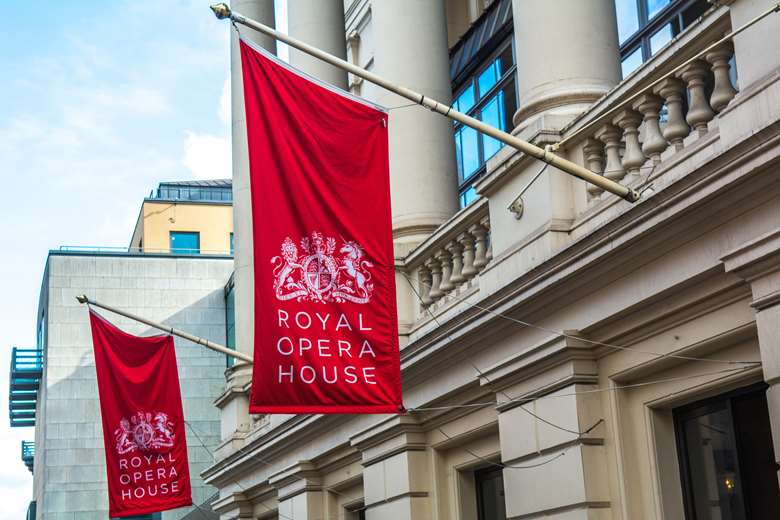Orchestral musicians call on UK government to ‘act now’ on streaming
Florence Lockheart
Thursday, April 3, 2025
Players in more than 20 UK orchestras have signed an open letter calling on the government to address the lack of streaming royalties for musicians

The Musicians’ Union (MU) has published an open letter signed by players in more than 20 orchestras across the country calling upon the Government to address the lack of streaming royalties for musicians.
The letter, which is addressed to Minister of State for Media, Tourism and Creative Industries Chris Bryant, urges the government to ensure musicians are properly and fairly remunerated for their recorded performances, especially considering the difficult financial context that the UK music industry currently faces.
MU general secretary Naomi Pohl said: ‘Streaming platforms have made music more accessible than ever before. They pay out around 70 per cent of their revenues to owners of music rights but the majority of this money never reaches musicians. And non-featured musicians, such as orchestral and session players who back featured artists on tracks and play on film and TV soundtracks, don’t receive any royalties. This has to change. It’s an issue that we know our 36,000 members really care about. Ensuring a fair share of streaming revenue reaches UK musicians won’t cost the Treasury a penny, but it will help to bolster thousands of careers in music. This is about updating copyright law to ensure it reflects the way people consume music now.’
The letter is signed by MU Stewards on behalf of the Orchestra of the Royal Opera House, the Scottish Chamber Orchestra and the English Touring Opera’s Orchestral Musicians, as well as by the Hallé, the City of Birmingham Symphony Orchestra, the Orchestra of Opera North, Sinfonia Cymru, musicians of the Royal Liverpool Philharmonic Orchestra and of the Royal Northern Sinfonia. Other signatories include Bournemouth Symphony Orchestra, Chineke!, English Chamber Orchestra, English Symphony Orchestra, Manchester Camerata, Northern Chamber Orchestra, Northern Ballet Sinfonia, Orchestra of Scottish Opera, Orchestra of the Swan, Players of Scottish Ballet Orchestra, Royal Ballet Sinfonia, The Hanover Band and Ulster Orchestra.
The full letter can be found below:
|
We, the musicians of the UK orchestras named below, call upon the Government to urgently address the lack of streaming royalties for musicians. Following over a decade of real-terms Arts Council cuts, the loss of significant parts of our audience because of the fallout from covid; we now have the sting in austerity’s tail: local councils cutting budgets or facing bankruptcy and being forced to slash all arts funding. The music sector in the UK is in a real crisis and facing an existential threat to its existence. Repeatedly, over the last couple of years, orchestras around the country have been reduced to part-time contracts or faced job losses and closure. If we don’t act now, it will be too late and the next generation of audiences will not have access to this form of culture. It’s already almost impossible, due to music education cuts, for a young person from a poor, working class, or ethnically diverse background, to consider a career as a musician in an orchestra, let alone as a musician more generally in this country. Live work and venues are disappearing, the sustainability of musicians’ careers is under threat, and musicians, who study for years and need continual practice to maintain the highest standards, see their income dropping in real terms with many struggling to earn more than £20,000 per year. And yet, music is being consumed and listened to more than ever before. Much of that now happens on streaming platforms and many of those tracks were recorded by us. Yet, despite radio stations paying royalties when they broadcast our music, non-featured performers currently receive no royalties for music streaming (‘making available’). Furthermore, we are aware of the risk that radio listening will move to services that are classified as ‘making available’, not broadcast, and that this will lead to a reduction in royalties payable to us. It is our strongly held view that if musicians create an asset that someone can profit from, then surely we should be properly and fairly remunerated for that in every case. In the long term, if all the profit goes to streaming platforms and record labels, there won’t be a next generation of musicians to record for them. It’s clear that the Government should act to save the very people who make our international industry the success it is – the musicians. With thousands of tracks on Spotify, Amazon Music and YouTube, we demand Government action now. A 2021 DCMS Select Committee recommended the Government legislate on this matter so that performers enjoy the right to equitable remuneration for streaming income. We are aware of the ongoing Creator Remuneration Working Group and hope this will provide a solution, either negotiated with the industry or via legislation. A change here won’t cost the Government or the taxpayer a penny. It will, however, go some way to help turn a corner in keeping our incredible musicians financially more secure both now and in the future, as well as providing the next generation of audiences with this remarkable form of culture made right here in the UK. If the Government really is serious about culture, which we can see from commitments made on EU touring and music education, and looking after one of our most valuable export assets, as well as protecting the well-being of its citizens who benefit enormously from a vibrant music sector and which makes our towns and cities worth living in – now is the time to act. |


